NI election 2022: Leaders clash in final TV debate
- Published
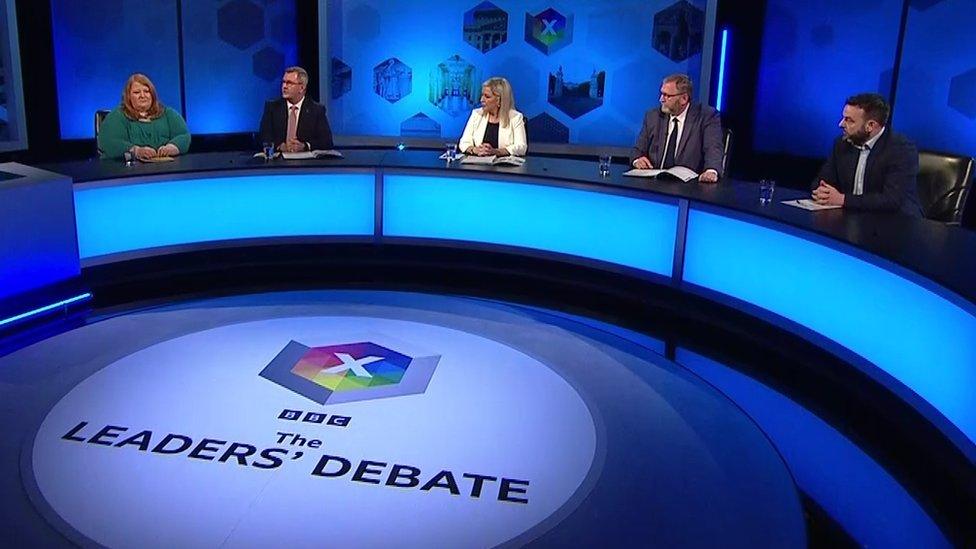
The five party leaders took part in the BBC debate
The leaders of the five main parties in Northern Ireland have clashed in the final TV debate of the assembly election campaign.
The Northern Ireland protocol featured heavily during the heated discussion.
Other questions ranged from the cost-of-living crisis to the healthcare service, a border poll and the future of the assembly.
Northern Ireland goes to the polls on 5 May to elect 90 members of the legislative assembly (MLAs).
DUP leader Sir Jeffrey Donaldson, Sinn Féin vice-president Michelle O'Neill, Alliance leader Naomi Long, SDLP leader Colum Eastwood and UUP leader Doug Beattie took part in the hour-long debate on BBC Northern Ireland.
They answered questions in the BBC Northern Ireland Leaders debate in front of a live audience in Belfast.

SIGN UP FOR ALERTS: Get extra updates on BBC Northern Ireland election coverage

Asked if the DUP would form an executive, party leader Sir Jeffrey Donaldson, said he would turn up but was not prepared to form an executive until the Northern Ireland Protocol had been dealt with.
Sir Jeffrey Donaldson said: "Of course I am committed to leading the DUP into executive but we must deal with the protocol."
The DUP leader said Sinn Féin's Michelle O'Neill walked out of government when she was health minister, adding: "In those three years, the waiting lists grew and grew and grew and now we have to clear up the mess that was left behind."
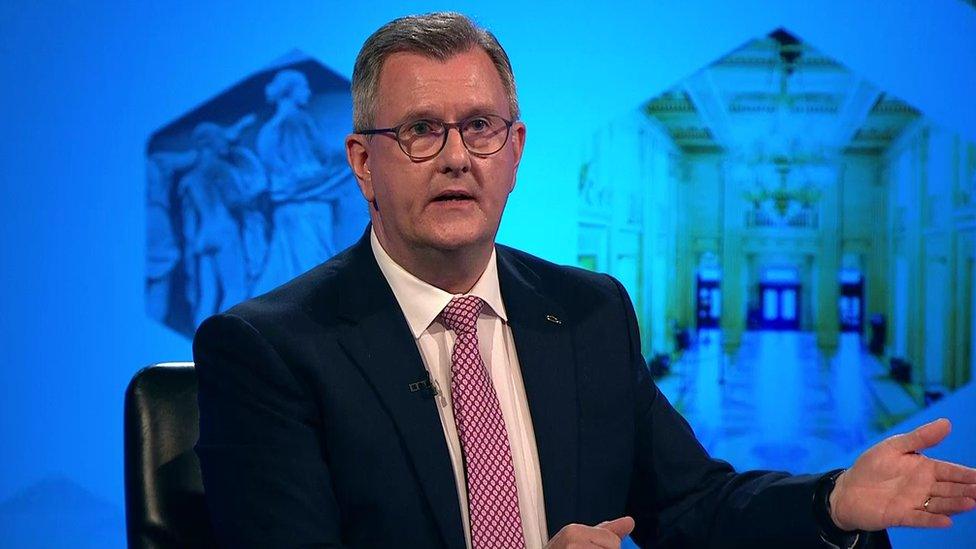
Sir Jeffrey Donaldson said he was not prepared to form an executive until the NI Protocol had been dealt with
Ms O'Neill described not having a government post-election as "absolutely unfathomable".
She accused the DUP of "holding us all to ransom" over its position on refusing to go back into an executive without action on the Northern Ireland Protocol.
"Whilst the rest of us want to put money in the people's pockets and deal with the cost-of-living crisis, the DUP are telling people their identity is under threat," she said.
Sir Jeffrey has not said if he will nominate a deputy first minister to serve along with a Sinn Féin first minister in the joint office, should Sinn Féin emerge as the largest party.

Michelle O'Neill accused the DUP leader of "holding us all to ransom"

What is the protocol?
The protocol is a special Brexit deal for Northern Ireland designed to prevent the return of a hard land border with the Republic of Ireland.
It was agreed between the UK government and the EU in 2019 and came into force in January 2021.
It led to new checks and paperwork for certain goods which are imported into Northern Ireland from Great Britain.
Many unionists strongly oppose the protocol as it created a trade border in the Irish Sea.
They argue that it creates additional costs for businesses and undermines Northern Ireland's place in the UK.

Alliance leader Naomi Long said she would be in Stormont ready to form an executive if she is returned by the electorate.
"I think it would be obscene, at a time when the real issues that are facing people are the cost of living crisis, pressures in health service; the challenges that we have with climate change... if we were to continue to take salaries during that period when we weren't doing our jobs.
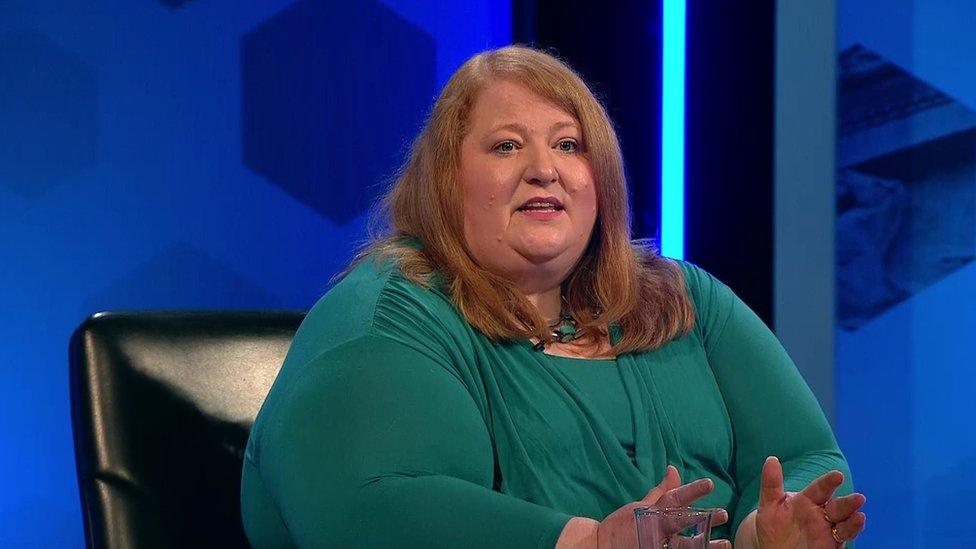
Naomi Long called for "sustainable government"
"We should not be locked out for long periods... we want reform of institutions and to have sustainable government".


Trailing from the first leg of the TV debate and falling further behind in the polls, Sir Jeffrey Donaldson needed a big performance.
He knew how his opponents would line up and take it in turn to attack his party over the protocol and its executive walk out.
But he was ready with his counter press, snapping back at every challenge and sucking up most of the airtime in the process.
His claims didn't go unchallenged, with Alliance leader Naomi Long calling out for someone to "fact check" the DUP leader's figures
SDLP leader Colum Eastwood was more scathing, dismissing them as "makey up stuff" .
Meanwhile UUP leader Doug Beattie accused Sir Jeffrey of using the threat of Sinn Féin pushing for border poll - a vote on Irish unification - as a "scare tactic" to get unionists to row in behind the DUP.
Sinn Féin's Michelle O'Neill was measured in her contribution, perhaps mindful of the "first minister for all" tag which her party has been promoting.
Read more from Enda here.

SDLP leader Colum Eastwood said that government in Northern Ireland could not be stopped over the Northern Ireland Protocol.
"We can talk abut the cost of living, and we can talk about health... nothing will be done about any of these issues if we don't have a government," he said.
Mr Eastwood said voters on the doors did not care about the protocol, but about getting "money into their pocket" to deal with the rising cost of living.
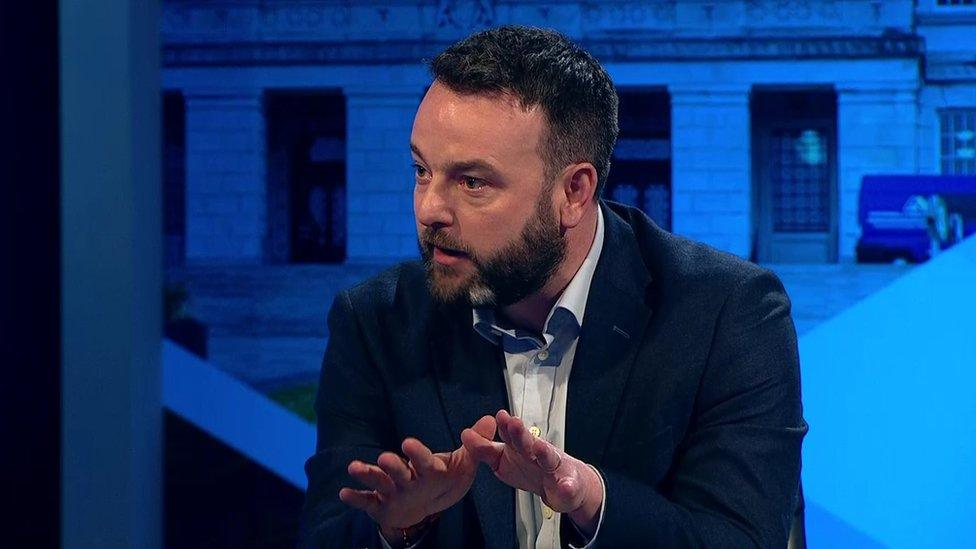
Colum Eastwood focused on the cost of living crisis
UUP leader Doug Beattie said he wants to see a programme for government agreed before a new executive is formed.
"If you agree the programme for government first, its outcomes, what the budget is going to be… I think that's an important way for us to travel," he said.
Mr Beattie, who is facing his first election as UUP leader, also praised the work of Robin Swann as health minister, saying his work during the Covid-19 pandemic has been "exceptional" while dealing with an "underfunded" and "under-resourced" health service.
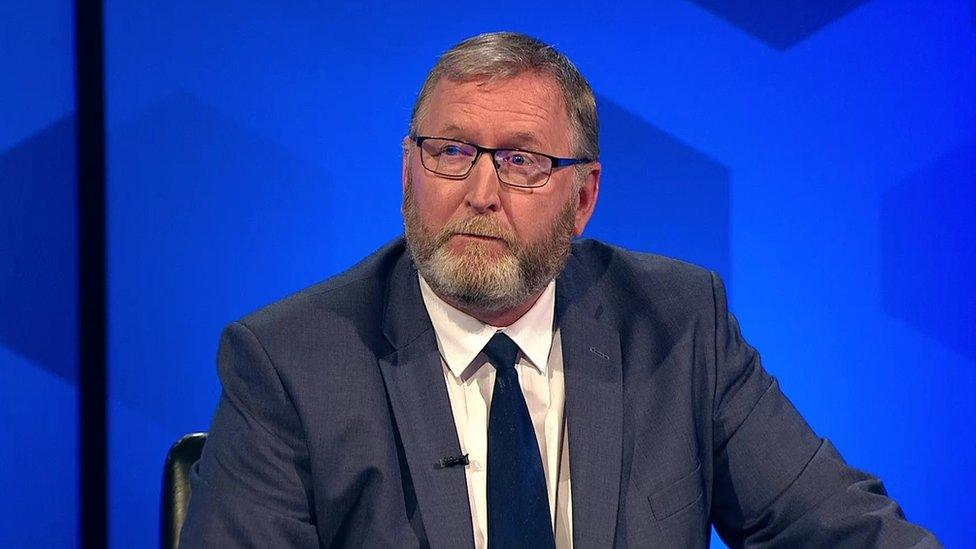
Doug Beattie called for a programme for government
Speaking on television after the debate, Traditional Unionist Voice leader Jim Allister told BBC Newsline there was not "one line of agreement", adding: "It was squabble".
He said the executive would never work because the parties do not have to agree about anything to be in government, and because "Sinn Fein is not there to make Northern Ireland work".
Green Party leader Claire Bailey told the same programme that the debate demonstrated that people "were just being held to ransom by the traditional politics of division and delay".
"What we're hearing on doors is the cost of living crisis. What people want is that all parties get behind the needs and tackle the cost of living crisis," she said.
Gerry Carroll of People Before Profit said the debate was "pretty uninspiring", adding: "I think the only reason why there was some talk about the cost of living crisis is because we're in the middle of an election."
In a statement, Aontú said what had been delivered by the current parties was "a collapsed Executive", long housing waiting lists and hospital lists and a "hole in the education budget".
The assembly election takes place on Thursday with the polls opening at 07:00 BST and closing at 22:00 BST.
Counting starts at 08:00 BST on Friday 6 May with the votes being counted at three centres in Belfast, Jordanstown and Magherafelt. The first results will be announced later that day.
A total of 239 candidates are hoping to win a seat, 11 more than last time.
A full list of candidates for the election on 5 May can be found here.
- Published3 May 2022
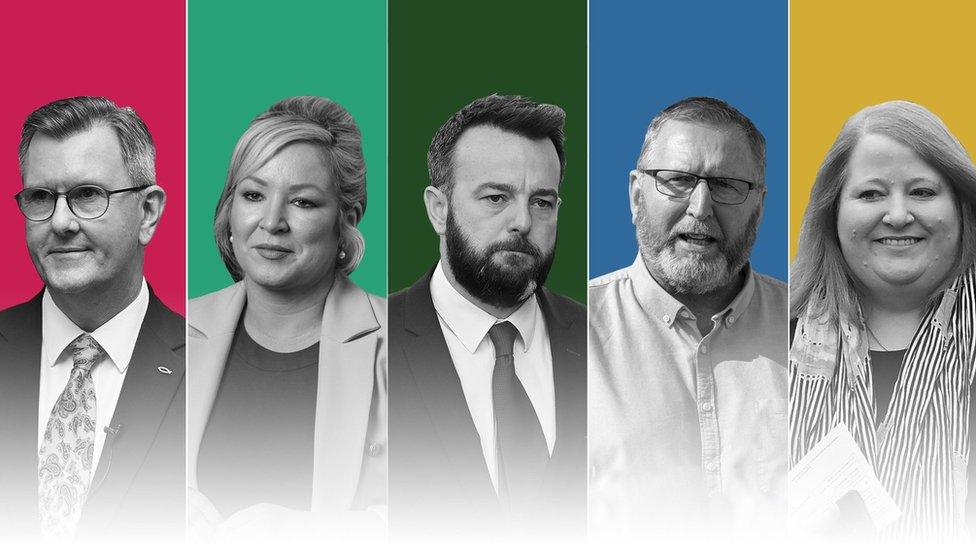
- Published14 April 2022
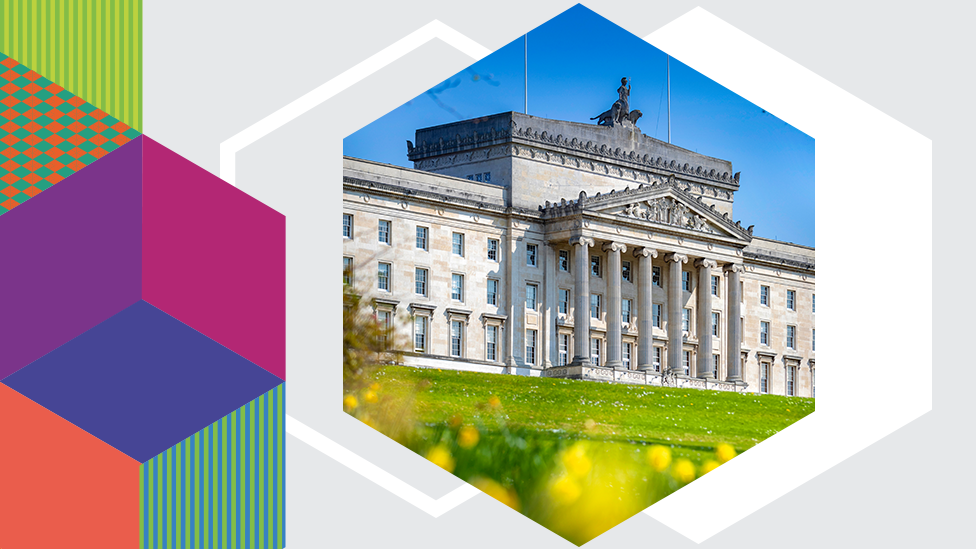
- Published4 May 2022
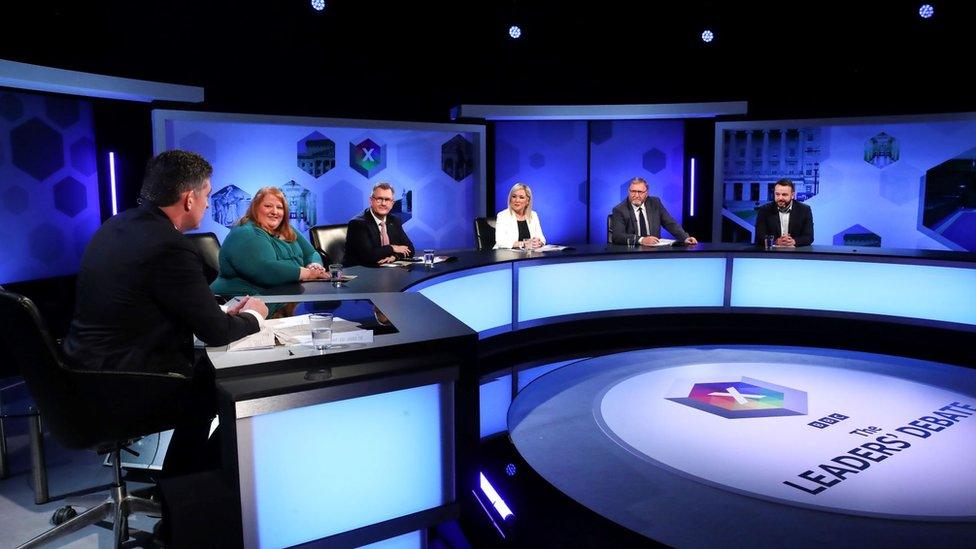
- Published4 May 2022

